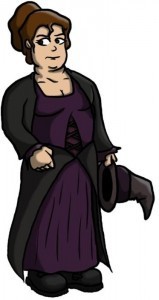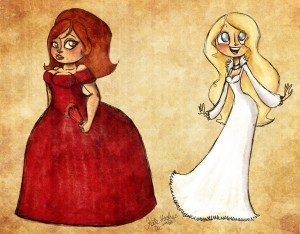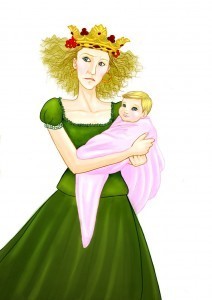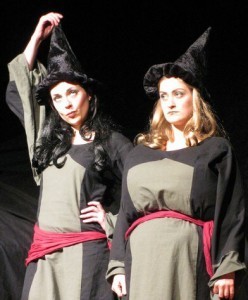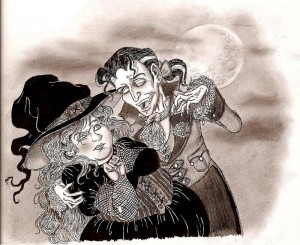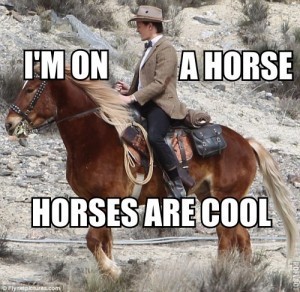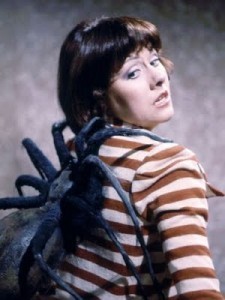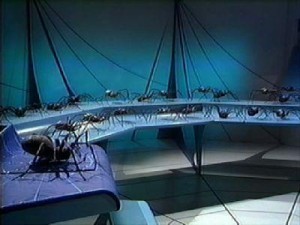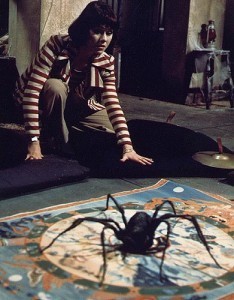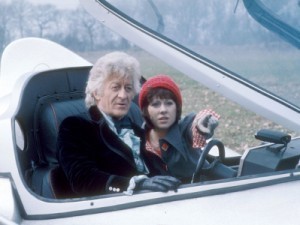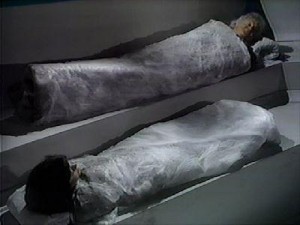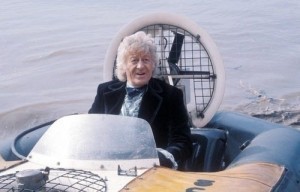Tansy Rayner Roberts's Blog, page 118
March 11, 2012
Pratchett's Women VII: A Wonderful Personality and Good Hair
Agnes, fan art by Vic Hill
MASKERADE and CARPE JUGULUM, by Terry PratchettEven though Maskerade made me cranky that Magrat's marriage had written her out of the narrative of the Lancre witches, it's hard not to be delighted about Agnes "Perdita" Nitt. She's a fantastic character, one of Pratchett's most interesting and nuanced portrayals of a younger female protagonist.
Agnes is fat. And while Pratchett's comic touch is very much in evidence, he brings such empathy to his depiction of Agnes that, even when fat jokes are being made, she herself is never treated like a joke. This is an incredibly rare thing in fantasy fiction, where fat women are rarely seen (unless they are villains or jolly service industry professionals) and young fat women are most definitely an endangered species.
There are so many things to like about Agnes and the portrayal of her character this book. For a start, we don't get the cliched emphasis on how she eats, or an ingrained narrative assumption that she is the size she is purely through over-eating or laziness. I also liked very much that while the reader is often confronted with the quite awful social ramifications of being a fat girl, it's never entirely clear cut how much the various perceptions surrounding Agnes reflect reality.
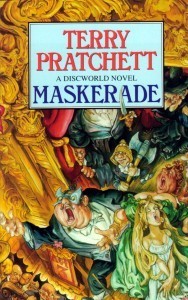 Nanny Ogg, for example, a larger lady herself, muses on how Agnes is a better bet for joining the witches because she's less likely to lose her maiden status like so many other village girls… but almost in the same breath she also acknowledges that fatness is actually no particular barrier to finding a husband in the Ramtops, especially if that corresponds with a talent for cooking. Nanny's own figure has never scared men off – even at her advanced age, she's usually batting men away with her broomstick.
Nanny Ogg, for example, a larger lady herself, muses on how Agnes is a better bet for joining the witches because she's less likely to lose her maiden status like so many other village girls… but almost in the same breath she also acknowledges that fatness is actually no particular barrier to finding a husband in the Ramtops, especially if that corresponds with a talent for cooking. Nanny's own figure has never scared men off – even at her advanced age, she's usually batting men away with her broomstick.
Likewise, while the plot revolves partly around Agnes being less 'stage-worthy' than the tone-deaf but thin and beautiful Christine, and thus having to provide her with a fake singing voice from behind the curtain, we hear regularly about the famous (fat) opera singer Gigli, and the power she had to attract as well as to delight with her music.
The undercurrent of the story is that it's actually not Agnes' weight that is getting in the way of her happiness – it's Agnes herself. While she is certainly is being discriminated against because of her weight, and there are some hurtful and embarrassing moments that emerge from that aspect of the story, her ACTUAL problem is the wonderful personality that everyone keeps going on about (a wonderful personality and good hair being synonymous for not thin enough, not pretty enough).
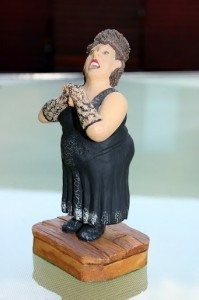 Agnes doesn't leave the Ramtop Mountains and come to the big city to audition as an opera singer because she is fat, or can't get a boyfriend, and it becomes evident pretty quickly that it's not entirely because she dreams of musical stardom, either. Opera isn't her first choice, it's just something to do. She is actually desperate to find herself an independent future that has nothing to do with the witches Granny Weatherwax and Nanny Ogg, who are looking for a third member of their coven – and even before the two of them strike out to follow her to the big city, she can't escape the witches because she is already one of them.
Agnes doesn't leave the Ramtop Mountains and come to the big city to audition as an opera singer because she is fat, or can't get a boyfriend, and it becomes evident pretty quickly that it's not entirely because she dreams of musical stardom, either. Opera isn't her first choice, it's just something to do. She is actually desperate to find herself an independent future that has nothing to do with the witches Granny Weatherwax and Nanny Ogg, who are looking for a third member of their coven – and even before the two of them strike out to follow her to the big city, she can't escape the witches because she is already one of them.
At every turn, it's not Agnes' size that gets in the way of her happiness, it's her brain. She can't turn it off, the cynical voice that says the wrong thing; the sharp inner bitchiness that sees all the daftness in the world for what it is. The joke is repeated (a touch too often) that inside every fat girl is a thin girl trying to get out – and the one inside Agnes is called Perdita, the name she is going by in the theatre. Perdita is her imaginary ideal self.
Basically, Agnes is a very intelligent girl who was trapped in a world where getting married was the main concern of her peers, and has escaped to a world where music and looking pretty are the only concern, because the fate of an intelligent girl in her village (becoming a witch) feels dreadful to her. Inventing "Perdita" and joining the opera allows her to feel she has some control over her fate and her identity.
But gradually, as the shine of opera starts to wear off and Agnes discovers that they're all basically crazy and making her crazy too, serving the capricious god that is 'opera' starts to seem as onerous as serving Nanny and Granny as their third witch. And in they march to demonstrate to Agnes that being a witch isn't as bad a life as it looks from the outside. Being a witch, in fact, means being the smart person in the room, and the village, and getting to help people who might not even realise they have been helped.
It's about being the person who says "WHY must the show go on?" when everyone else is running around like headless chickens and enjoying the dramah. In short, everything Agnes wanted from her mythical "Perdita" is what joining the witches can give her. She just has to stop sabotaging herself.
There's a lot of pantomime and humour in the portrayal of the older witches, but it's rather nice without Magrat (and with Agnes not yet one of them) to get more of an insight into the characters of Granny Weatherwax and Nanny Ogg as a unit, as friends, and as women who probably shouldn't spend TOO much time alone together. I particularly love to watch the different ways they approach the mystery, Granny going directly for the insides of people's heads, while Nanny watching their body language and behaviour.
The sympathy they feel for Mrs Plinge, the woman who knows pretty much everything that's going on in the theatre, going through her own personal tragedy every day, comes across clearly, demonstrating that Agnes is at least partly wrong about them.
fan art by Kate Hughes
I'm not sure about the characterisation of thin girls in this book – though I do have a soft spot for the line about ballerinas being crazed with hunger. It would be nice to have a book that looks at how weight doesn't have to be an obstacle for a woman and doesn't simultaneously judge and deride thin women too.But while Christine's thinness gives her unfair advantage over Agnes, she is not an unsympathetic character. Her presence shows prejudice and bias at work – just as we see Agnes overlooked and missing out on opportunities because she's not conventionally beautiful, we see the way that opportunities are thrown in Christine's way because of her looks, and way she takes her "luck" for granted without questioning its source. While Christine can be thoughtless, though, she isn't deliberately cruel.
It's basically thin privilege at work. Christine's lack of awareness and her general niceness is what salvages the character from being a cliche – she is actually a good friend to Agnes, despite the situation they are in (and Agnes, thanks to the urging of Perdita, is less than a good friend to her). Agnes might be the one who is blessed with 'a good personality' but of the two, Christine is the only one who is actually nice. Of course, Christine can afford to be nice, because everything she ever wants falls into her lap… see? NUANCE. I am impressed once again to see a story this complex about the interactions of women told by a male author.
I also love that, in the end, while we know that Agnes is going to submit to the witches and join them, she is not prepared to go home on their terms. The final scene of her drenched in mud and rain while they sail home in the coach shows her stubbiness, and tenacity, as well as her general tendency to cut off her nose to spite her face. She is going to be a very different kind of third witch than Magrat.
And, speaking of Magrat…
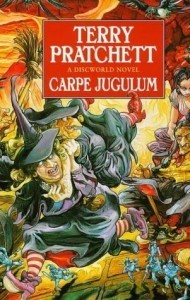 It's funny how motherhood completely changes your perspectives on what's relevant, and important. I remembered that Lords and Ladies was the last time Magrat got to shine, and that once she got married, she disappeared out of the narrative of the Lancre witches. I also remembered that Carpe Jugulum was mostly dull, with a few good Granny Weatherwax bits, and not much else of interest.
It's funny how motherhood completely changes your perspectives on what's relevant, and important. I remembered that Lords and Ladies was the last time Magrat got to shine, and that once she got married, she disappeared out of the narrative of the Lancre witches. I also remembered that Carpe Jugulum was mostly dull, with a few good Granny Weatherwax bits, and not much else of interest.
How wrong I was!
This is one of those Discworld books (like Hogfather) where the mystery doesn't entirely work as a mystery, so it's far more powerful as a reread when you don't have to stop and wonder what's going on. Granny Weatherwax is under attack from some very smooth vampires who are determined that they will take control of Lancre from under her nose. She responds by disappearing, apparently giving up, leaving the three remaining witches to come together and rescue her, and save the day.
The sneaky twist being that when the vampires bite Granny and leave her for dead, instead of turning her into one of them, she manages to infect them, so they start saying things like "I can't be having with this" and craving tea. She turns a whole pack of slavering ageless vampires into cranky old ladies.
This fascinates me because of all the stories of a woman getting the better of a pack of vampires, this is the anti-Buffy. It's utterly passive as a method – Granny literally lies down and lets them drink her blood – and yet the effect is devastating. It's one of the best examples I can think of how the "strong women characters" trope has rendered so much female strength invisible.
I discovered to my surprise that this is my favourite Granny Weatherwax book, despite the lack of her in much of the story. When she does appear, she is mesmerising. Her not-quite-friendship-let's-say-alliance with the hapless priest Oats is compelling to watch, especially the way that he is the only person not in awe of who she is – so he can see she's actually an old lady who needs help, even if he has to circumvent her ego in order to do so. He's probably the most interesting male character to interact with the witches, not least because each of them have very different responses to him, and what he represents: not only his interesting relationship with Granny as the outsider who sees her for what she is, but also an ongoing thread of tension with Nanny about her objections to his religion and its history of burning witches, and the sort-of-maybe romantic tensions with Agnes, which are incredibly subtle and remain largely unaddressed for the story because the two of them are incapable, basically, of allowing their interest to rise above subconscious level. (Plus she spends most of the book batting a hot vampire away with a stick)
Magrat with Esme, by Lady Snow
Then there's Magrat, who is the barely-there queen for a good chunk at the beginning of the story, concentrating mostly on her new baby and christening, but later on has to put on her big witch knickers, strap her baby to her back and save the kingdom when her husband yet again falls to magical predators. As someone who has been doing the mother-of-small-children thing in recent years, I've become fascinated with how rare it is to see mums with babies on the front line in magical stories, and how they deal with it when it happens.(I really do have to write that article on Gwen Cooper and the last series of Torchwood some time soon)
The problem with incorporating babies into magical adventure stories is that there is little excuse, most of the time, for taking the baby into direct danger. Unless of course, there is nowhere safe to leave the baby, which is the situation here! Young Esme is in less danger strapped to her mother's back, with Nanny Ogg at her side, than being babysat by a random female character in a kingdom full of vampires. Indeed, getting the baby to safety becomes a driving part of the story, only leading to more trouble.
There's some fun to be had with the fact that Magrat isn't a virgin any more, and thus gets some of Nanny Ogg's jokes. I like the fact that in amongst the rather silly focus on having to have a maiden and a mother and a crone, there's some deeper exploration as to how, for instance, becoming a mother or transitioning into a crone are actually quite, well, life changing!
Agnes and Perdita, from a University stage production
Then there's Agnes. In Maskerade, Perdita was characterised very much as Agnes' inner voice, the one who says the bitchy and intelligent things she normally tries to damp down, in order to appear unthreatening. By Carpe Jugulum, it's pretty clear that Perdita has become a powerful personality in her own right, as much as a cross for Agnes to bear as the overwhelming personalities of Granny Weatherwax and Nanny Ogg.Perdita also has a role to play in the plot, as she is the only one who is immune to the mesmerism of the vampires, thus freeing Agnes at least partly to realise what is going on, and help the other witches remain free long enough to bring the vampires down. I was glad to see though that now she is a witch, Agnes has taken back her inner snark as part of her own personality, leaving the inner Perdita with the more romantic and impractical views on life. Their relationship and interactions are quite fascinating to watch, and it feels like a bit of a shame to me that Pratchett left the characters here – he continued using Granny Weatherwax in the Tiffany Aching books, but this is the last time we saw Agnes.
Considering all the issues to do with Agnes' weight in Maskerade, it's nice to see that this isn't remotely relevant to the plot in this story. The only time it's even referred to is when the bitchy female vampire Lacrimosa uses it to insult her – and that tells us a lot more about Lacrimosa than Agnes. Meanwhile, Agnes is seen as a figure of desire by Lacky's brother Vlad, who spends most of the book trying to seduce her, and there are implications of a quieter and less showy potential romance between she and Oats.
There's so much to like about this book, which challenges so many of the mythological traditions of vampires, and in particular argues that a world in which the vampires are organised, methodical and POLITE about taking the blood of their victims is far less horrific than one in which they acknowledge that they are in fact, the monsters.
One of my favourite feminist moments of the Discworld occurs in this book – well, two. The first is Granny Weatherwax taking out a horde of vampires by lying down and letting them bite her; the second is the big finale, where Vlad is trying to convince Agnes to let him go, to prioritise their romance over the safety of others.
fan art by Thibaut Loïez
Vlad looked imploringly at Agnes, and reached out to her.'You wouldn't let them kill me, would you? You wouldn't let them do this to me? We could have… we might… you wouldn't, would you?"
The crowd hesitated. This sounded like an important plea. A hundred pairs of eyes stared at Agnes.
She took his hand. I suppose we could work on him, said Perdita. But Agnes thought about Escrow, and the queues, and the children playing while they waited, and how evil might come animal sharp in the night, or greyly by day on a list…
'Vlad,' she said gently, looking deep into his eyes. 'I'd even hold their coats.'
=====
Previous posts in this series:
Pratchett's Women: The Boobs, The Bad and the Broomsticks
Pratchett's Women II – Slash! Stab! A Lesson in Practical Queening in Lords and Ladies
Pratchett's Women III – Werewolf Glamour and the Sexing of Dwarves in Guards, Guards!, Men at Arms, Feet of Clay
Pratchett's Women IV: His Henpecked Voice in Jingo & The Fifth Elephant
Pratchett's Women V: The Seamstress Redemption in Night Watch
Pratchett's Women VI: Pole Dancers, Goblin Girls, and the Family Man in Thud and Snuff
March 10, 2012
Things That Make Me Happy
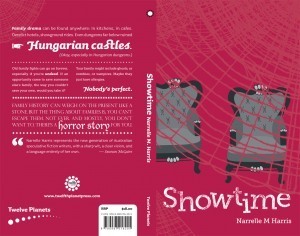 My good friend and fellow Twelve Planeteer (that's what we're called, right?) Narrelle Harris has the delight this week of the release date of her book Showtime, a collection of domestic horror stories. Seanan Maguire wrote a fantastic introduction to the collection, and of course my other very good friend Alisa gets to celebrate the first book off the Twelfth Planet Press press for 2012.
My good friend and fellow Twelve Planeteer (that's what we're called, right?) Narrelle Harris has the delight this week of the release date of her book Showtime, a collection of domestic horror stories. Seanan Maguire wrote a fantastic introduction to the collection, and of course my other very good friend Alisa gets to celebrate the first book off the Twelfth Planet Press press for 2012.
Celebrations all around!
Also, I was delighted to see that Nicola Griffith has received the inaugural Galactic Suburbia doll, and found a place for it in her home. It's lovely for me to be able to combine two things that are hugely important to me, Galactic Suburbia and the Deepings Dolls, and to see my Mum's artwork appreciated so much.
All this, and there has been some lovely feedback about our Tiptree winner and shortlist, so that's a cause for celebration, too.
Such a lovely way to start a long weekend!
March 9, 2012
Andrea Hairston wins Tiptree Award
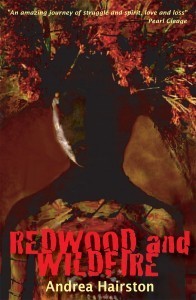 I've had the best fun ever being a juror for the James Tiptree Jr. Award this past year, and it's very exciting that now the news is out, we get to share our picks with everyone! We had such a wealth of material to read for this, which makes me feel very happy about the current state of the genre. Interrogating gender issues may not be something every SF or fantasy book does, but it feels like there's a hell of a lot more out there than there used to be. (my groaning bookshelves attest to this)
I've had the best fun ever being a juror for the James Tiptree Jr. Award this past year, and it's very exciting that now the news is out, we get to share our picks with everyone! We had such a wealth of material to read for this, which makes me feel very happy about the current state of the genre. Interrogating gender issues may not be something every SF or fantasy book does, but it feels like there's a hell of a lot more out there than there used to be. (my groaning bookshelves attest to this)
The James Tiptree, Jr. Literary Award Council is pleased to announce that the winner of the 2011 Tiptree Award is Redwood and Wildfire by Andrea Hairston (Aqueduct Press, 2011). Hairston had already agreed to serve as a juror for the 2012 award. By a first-ever coincidence, she is also one of the Guests of Honor at this year's WisCon, where the Tiptree Award is traditionally celebrated.
The James Tiptree Jr. Award is presented annually to a work of science fiction or fantasy that explores and expands gender roles. The award seeks out work that is thought-provoking, imaginative, and perhaps even infuriating. It is intended to reward those writers who are bold enough to contemplate shifts and changes in gender roles, a fundamental aspect of any society.
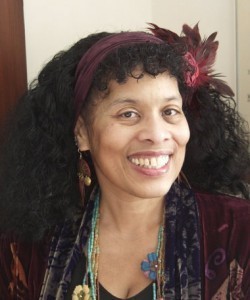 The Tiptree Award winner will be honored during Memorial Day weekend at WisCon in Madison, Wisconsin. Andrea Hairston will receive $1000 in prize money, a specially-commissioned piece of original artwork, and (as always) chocolate.
The Tiptree Award winner will be honored during Memorial Day weekend at WisCon in Madison, Wisconsin. Andrea Hairston will receive $1000 in prize money, a specially-commissioned piece of original artwork, and (as always) chocolate.
Each year, a panel of five jurors selects the Tiptree Award winner. The 2011 jurors were Lynne Thomas (chair), Karen Meisner, James Nicoll, Nisi Shawl, and Tansy Rayner Roberts.
Redwood and Wildfire was a favorite of the jurors from the moment they read it. They reported: "This vivid and emotionally satisfying novel encompasses the life of Redwood, a hoodoo woman, as she migrates from rural Georgia to Chicago at the turn of the 20th century. While Redwood's romance with Aidan Wildfire is central to the novel, female friendship is also a major theme, without deferring to the romance. Hairston incorporates romantic love into a constellation, rather than portraying it as a solo shining star. Her characters invoke a sky where it can shine; they live and love without losing themselves in cultural expectations, prejudices and stereotypes, all within a lovingly sketched historical frame.
"Intersections of race, class, and gender encompass these characters' entire lives. They struggle with external and internal forces around questions of gender roles, love, identity, and sexuality. This challenge drives how they move through the world and how it sees them. The characters in Redwood and Wildfire deftly negotiate freedom and integrity in a society where it's difficult to hold true to these things."
In addition to selecting the winner, the jury chose a Tiptree Award Honor List. The Honor List is a strong part of the award's identity and is used by many readers as a recommended reading list for the rest of the year. This year's Honor List is:
Libba Bray, Beauty Queens (Scholastic Press 2011) — In this atypically comedic Tiptree candidate, a cast of iconic characters trapped on a hostile island (populated by the capitalist analog of Doctor No) illuminates the limited palate of roles for women and offers the hope of more rewarding and rounded lives.
L. Timmel Duchamp, "The Nones of Quintilus" (in her collection Never at Home, Aqueduct Press 2011) — This standout story addresses the relationships between mothers and daughters and how the world looks different when you become (or intend to become) pregnant.
Kameron Hurley, God's War (Night Shade Books 2011) — Set on a marginally habitable world divided by a common religion with diverse interpretations, this engaging work explores a militaristic matriarchal society.
Gwyneth Jones, The Universe of Things (Aqueduct Press 2011) — Running through these gorgeous stories is a fierce awareness of how gender roles and other social power imbalances are always factors in how we think, how we approach one another, how we see the world. The author questions the status quo, and then questions the questioning, so what emerges is a mature, honest, thoughtful complexity.
Alice Sola Kim, "The Other Graces" (Asimov's Science Fiction, July 2010) — This elegantly written short story revisits the role of mirroring in self-actualization and casts that path in a new and skiffy light as its heroine, Grace, is mentored by her older alternate selves. It also depicts racial/cultural intersections with gender roles.
Sandra McDonald, "Seven Sexy Cowboy Robots" (Strange Horizons, 2010.10.04) — A surreal and subversive take on human-AI relations. An older female character exploring her sexuality is a rare thing in science fiction, and it is refreshing to see it handled here with such a deft hand.
Maureen F. McHugh, "After the Apocalypse" (in her collection After the Apocalypse, Small Beer Press 2011) — This title story of an impressive collection brings to the foreground gender expectations concerning the practice of motherhood in extreme situations and then completely and matter-of-factly upends them.
Delia Sherman, The Freedom Maze (Big Mouth House 2011) — A clear-hearted, magically immersive time travel story that explores powerful ideas. Thrown back through time to an antebellum plantation, a thirteen-year-old comes to understand how women's experience is shaped by cultural expectations as they interweave with social, economic, and racial truths.
Kim Westwood, The Courier's New Bicycle (Harper Voyager Australia 2011) — This compelling novel depicts a variety of sexually transgressive characters and looks at themes of fertility and alternate family structures through a dystopic lens.
Congratulations to the many honoured authors and in particular to Andrea Hairston for her magnificent novel and great achievement here.
EDIT: OK it's up in lots of places now if not on the main site so I'm including the long list as well, which I am just as proud of. So many good, crunchy, interesting books and stories, you guys!
LONG LIST
In addition to the honor list, this year's jury also compiled the following long list of other works they found worthy of attention:
• Lauren Beukes, Zoo City (Angry Robot 2011)
• Sigrid Ellis, "No Return Address" (Strange Horizons, 2010.11.29)
• Karen Healey, The Shattering (Allen & Unwin (Aus/NZ) 2011; Little, Brown (US) 2011)
• Sue Isle, "Nation of the Night" (in her collection Nightsiders, Twelfth Planet Press 2011)
• Alaya Dawn Johnson, "Their Changing Bodies" (Subterranean, Summer 2011)
• Malindo Lo, Huntress (Little, Brown 2011)
• Meghan McCarron, "We Heart Vampires!!!!!!" (Strange Horizons, 2010.05.03-10)
• Teresa Milbrodt, Bearded Women Stories (ChiZine Publications 2011)
• Nnedi Okorafor, Akata Witch (Viking 2011)
• An Owomoyela, "Of Wolves and Men" (Fantasy Magazine, February 2011)
• Helen Oyeyemi, Mr. Fox (Riverhead 2011)
• J.R. Pournelle, Outies (New Brookland Press 2011)
• Lev AC Rosen, All Men of Genius (Tor 2011)
• Catherynne M. Valente, Deathless (Tor 2011)
March 8, 2012
Friday Links is On a Horse
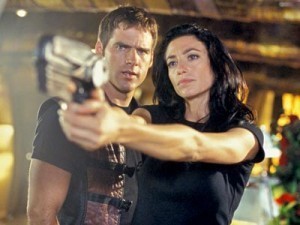 I think I actually swooned at this one – Ben Browder to guest star in Doctor Who – in a Wild West episode. SWOONED, I tell you! (now we just need Claudia Black to come in as Benny Summerfield and the world will be a perfect place)
I think I actually swooned at this one – Ben Browder to guest star in Doctor Who – in a Wild West episode. SWOONED, I tell you! (now we just need Claudia Black to come in as Benny Summerfield and the world will be a perfect place)
This is one I meant to bring to the table at our recent recording of Galactic Suburbia (should be up tonight) but forgot: craft is at the top of the cultural activities performed by Australians, but our peak funding body for cultural activities has just defunded Craft Australia. (I didn't even know there was a Craft Australia!) There's plenty of gender & class privilege to unpack here, as there usually is when the line between craft and art is drawn.
Speaking of stuff I probably should have included in this week's GS – Nicola Griffith talks about How To Fix Gender Bias in book journalism.
I have written a few posts in places other than here on the internet this week: I talk about fantasy words and names on the Voyager blog, in response to this lovely post by Natalie Costa Bir who talks about the vocab I use in the Creature Court books.
pic thanks to the Mary Sue
Over on Doctor Her, I posted Domesticating the Doctor I: Cocoa, Test-tubes and the Classic Years. I will be cross-posting some of the pieces I write over there, but not all of them because I don't want this to become the all-DW-all-the-time blog. I'll always link to them, though!Speaking of all Doctor Who all the time, here's a lovely standalone interlude to Girl on the Moon's ongoing Tenth Doctor comic strip, in which the Doctor decides to wait until he's Eleven (and has the Ponds along) to go visit guerilla Mickey and Martha at the end of The End of Time Part II. It's lovely!
Jo Walton linked to this great Pinterest board of book covers from her heroine's reading material in Among Others. If you liked the book, this should resonate with you – it feels like walking into a second hand bookshop! (also I'm starting to get a feel for what Pinterest is useful for. Don't suppose someone wants to do a board of all the books Galactic Suburbia has recommended to people??)
On Tiger Beatdown, an angry and rather inspiring post about feeling discomfort with International Women's Day, and the limited view of what a woman is, as shown in the international media.
Check out this extraordinary collaboration between singer/songwriter and Triple j Unearthed winner Yunyu, Aussie manga artist Queenie Chan, with animation by the Commonist: Twisted Tales Episode 1 – Dorothy. Has anyone else ever put Dorothy of Oz in space before? This is such a gorgeous piece of work, I can't wait to see what they do next.
March 7, 2012
Today, For International Women's Day I Shall…
Get my daughter to school, while my partner gets the toddler (she is dressed as Batman) to daycare.
Brief (BRIEF) coffee with mums from school.
Work like the clappers until 2:30, including editing, cleaning house, more editing, and some other writing-related admin jobs.
Pick up daughter from school, take for eye test.
Early tea with children.
Attend discussion panel at Fullers Bookshop on topic of Int. Women's Day and Stella Prize.
Get home in enough time to put (hopefully only one) daughter to bed.
Record an episode of Galactic Suburbia.
That's enough to be going on with, right?
NOTE: I typed this while listening to my 7 year old listing all the superpowers she has when she plays heroes in the playground.
Ready… set… GO!
March 1, 2012
Friday Links is a Heroic Lady
 Lots of Sarah Rees Brennan in this one! Here, she answers a question about what traits she likes best in a heroic lady character, and manages deftly to expand her answer into a very important discussion about feminist critique, and the way talking about female heroes can so easily turn into a bitchfest about which fictional women don't make the grade.
Lots of Sarah Rees Brennan in this one! Here, she answers a question about what traits she likes best in a heroic lady character, and manages deftly to expand her answer into a very important discussion about feminist critique, and the way talking about female heroes can so easily turn into a bitchfest about which fictional women don't make the grade.
Avante garde artist Sarah Maple reveals her new work, a series of self-portrait photographs of Disney Princesses as modern day career women and university graduates. I've seen so much sickening art which involves the mutilation or mockery of the Disney Princesses, and it's lovely to see female artists like Maple (and the excellent cartoonist Amy Mebberson) who use their iconic images to create something that subverts expectation, and has something positive to say about women.
I missed this before – a piece from the 7:30 report that screened before the Stranger With My Face women in horror film festival. Includes gore, lesbian zombie musicals, and some nice interview footage with the two women behind the project, Briony and Bec. It was such a cool event – I hope they do it again! It made me want to write a horror film script…
Jeff Vandermeer talks about panicking about your career path and productivity as a writer, something I can identify with strongly, especially right now.
Meanwhile, Catherynne Valente is inspiring over at the antipope blog, talking about the many faces of publishing, and how a writer doesn't have to choose between traditional, small press and even self publishing, but can construct a career out of all the options.
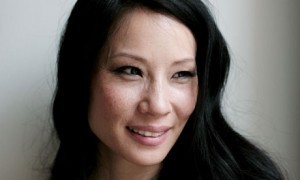 Back to Sarah Rees Brennan now, and the announcement that Elementary, the modern version of Sherlock Holmes that they are making in the US that made us all roll our eyes cynically, suddenly got interesting with the casting of Lucy Liu as Watson. Sarah talks not only about how the casting of a (40+) woman of colour is an exciting move that marks this adaptation out as different, but also addresses the cynical criticism that is already building up around the casting choice.
Back to Sarah Rees Brennan now, and the announcement that Elementary, the modern version of Sherlock Holmes that they are making in the US that made us all roll our eyes cynically, suddenly got interesting with the casting of Lucy Liu as Watson. Sarah talks not only about how the casting of a (40+) woman of colour is an exciting move that marks this adaptation out as different, but also addresses the cynical criticism that is already building up around the casting choice.
"Differences will exist! Media is imperfect. But 'until we can achieve perfection, let's stick with the white dudes' is not something I believe in. I'll see how Dr Watson of Elementary plays out: and if I don't like it, I'll stop watching.
Till then, I am uncomfortable with how much easier, on far less evidence, people seem to find it to dismiss a woman: she won't be good enough, won't be strong enough, Elementary hasn't done ENOUGH."
DOCTOR WHO STUFF:
i09 interviews Courtney Stoker about crossplay, femme cosplay and the rise of the female Doctor at conventions.
Speaking of Courtney and feminist Doctor Who stuff, there's a whole lot of great new posts over at Doctor Her. Some I found particularly interesting:
Are You My Mummy? The power of motherhood in New Who, by cathannabel
Too Many Dads in Doctor Who by Ritch Ludlow
The Bechdel Examination: Rose and the End of the World by daisybones
The Doctor and the Subtext of Loneliness by K.N. Porter
Companions in Comics: Getting into Sharon's Head, by Kmasca (did anyone else know the first black companion joined Tom Baker in 1980??)
and I wrote a piece about the awesome first producer of Doctor Who back in the 60′s, Verity Lambert.
Finally, doing my bit to signal boost to the internet that 'The Avengers' doesn't always mean Captain and his shiny friends:
Editing Your Novel and the Art of Strategic Panic
So it's a new month and along with hatters and hares, March is bringing a whole lot of new writing issues for me to talk about in what seems to be a theme of writing process vs. lifestyle this week (started with Writing – Mothering – Balancing and continued with Mothering, Writing, Pilating, Guilt).
My plan for this year is still pretty loose, but the big goal was to have the revised, polished and generally awesomecaked Nancy Napoleon novel ready to submit by the end of March. Which seemed pretty sensible to me – I had ROR at the end of January, and school holidays ended the middle of February, which gave me a whopping SIX WEEKS to revise the book at make it awesome.
But then I convinced myself that I had all these other bits and pieces of things to do, like writing my talk for the Horror film festival, and a few short stories, and… well the main thing was that at that point I'd put down very few new words since November, and much though my 'no writing school holidays' experiment was a great success, I was starting to get the itch. So I gave myself a different goal of writing 10,000 words on various fiction projects, and happily played with the idea of getting back into some kind of writing routine.
At least, that's what the top part of my brain thought was happening. The public face of the brain. The secret, dingy underbelly of my brain had a whole different agenda, which I have been circling around for the last few days, waiting for the bad news to be revealed. Here we go:
The truth is, I hate editing myself.
This has come as a shock to me, let me tell you! I spent 10 years teaching Creative Writing, evangelising about the glories of editing. I constantly tell myself that rewriting is easier than writing new words, there's so much less pressure to be creative, you have it all THERE and you just get to tease it into being better.
But, of course, that's the problem. Rewriting *is* easier than writing new words. There's less creative pressure. And yes, I really am this perverse… the fact that it's easier is what makes it harder for me. The older I get, the more my writing discipline depends on creative pressure, and momentum. As soon as either is relaxed, my brain starts self-sabotaging.
Because I have not been able to convince my brain that editing is hard, high-energy work (which, you know, it is, just different to the generation of new words) I often struggle to get it done at all.
The other challenge of rewriting/editing vs. generating new words is that there's no easy way to measure progress, or plan tasks. It's like the government health or education budget – it takes every resource you throw at it and can always use more. But figuring out how many resources are ENOUGH is really hard.
My current way of dealing with any kind of editing or rewriting work, whether it's done with the aid of publishers or on my own, is to procrastinate for approximately half the available time, panic madly, and then hurl myself into the task, feeling sick and stressed, and furious at myself. Because that is not my business model. I've never been the kind of writer who pulls all-nighters. I work incrementally, build up momentum, and create sensible, achievable regular goals. Even in my old uni days, I would leave my crazy essay writing to the last available entire free day I had, not the last minute. (ah, for the day of entire free days) But when it comes to the editing and rewriting process, my brain just goes out the window.
Partly I have known this about myself for a while – especially my ability to shave weeks off deadlines in order to kick-start the panic centres of my brain. I always call this the Lintilla Complex, after my favourite Hitch-Hiker's Guide to the Galaxy character. She appears in the second series of the original radio version of the story, which he chucked away to replace with a different plot for the books, and thus she is now pretty obscure, but I love her to bits. She's an archaeologist who has had her arm offically broken, because of a theory that having some kind of stressful obstacle put in your way actually makes you more efficient. (which, okay, now I come to think of it is probably pretty offensive to anyone with a disability, MOVING ON!) I seem to recall she has a button which she regularly presses in order to get, for example, guards finding them, therefore prompting them all to run a lot faster and secure their goals more effectively.
When it comes to editing and rewriting, I am Lintilla with a broken arm. I sabotage myself JUST ENOUGH in order to get the synapses screaming, but not huddled in a ball on the floor, and then I Get Shit Done.
It's exhausting just thinking about it. I've managed to not acquire this tendency for anything else in my life (except maybe cleaning the house in the week before hosting a party) but I seem to be stuck with it when it comes to novel revision.
I was starting to suspect that I had done it again, and that for all my sensible reasons for not starting the Nancy rewrite back on February 11th when school went back, really I was Lintillaing. Then came today. Which was the 1st March, and also one of my precious daycare days. So the best possible, possible day to start rewriting the book, or at least planning what I needed to do to get the project done.
And of course I spent most of the morning frozen, circling around the task of even OPENING THE FREAKING DOCUMENT in order to get all sorts of other things done (so not a wasted day!) and realising every time I considered starting the revision work that, in fact, I didn't want to. When I did finally open the document, it felt like a ridiculously huge achievement, because I had spent the whole morning actively ignoring the little voice in my head that was trying to move the goal posts, again.
So my plan for March, apart from REVISE NOVEL is to work on the revising of the novel every day. I'm not going to say how much time, because my time is a highly sought after resource in this house, and I'm not going to say how much I'll get done per day because, to be honest, I have no idea what the job entails. This is one of those instances when you realise that writing books is like building houses – you think you've learned enough from doing it once to do it flawlessly the next time, but all you learned is in fact how to write that book which is already written, and the new one requires a WHOLE NEW TOOLBOX.
Sigh. I think I learned more about myself as a writer today, and I'm not sure I like what I've learned.
Time to break my arm, call for the guards to chase me, and start running.
February 28, 2012
"Not Just a Journalist But a Woman Journalist!" [Review: Planet of the Spiders]
Crossposted from Doctor Her
I once tried to convince Raeli to cosplay this outfit for a party - she had the stripy top but refused to add the spider!
"Planet of the Spiders" (1974)Season 11: Production Code ZZZ
Written by: Robert Sloman & (uncredited) Barry Letts
Directed by: Barry Letts
Script Editor: Terrance Dicks
Starring:
THE DOCTOR: Jon Pertwee & (uncredited) Tom Baker
SARAH JANE SMITH: Elisabeth Sladen
BRIGADIER LETHBRIDGE-STEWART: Nicholas Courtney
SGT. BENTON: John Levene
MIKE YATES: Richard Franklin
LUPTON: John Dearth
I didn't mean to rewatch Planet of the Spiders this weekend, but when your seven-year-old daughter voluntarily suggests a touch of Jon Pertwee, you don't turn her down!
This final story of the Third Doctor's run is one of my absolute favourites, and has been since… wow. Probably since I was about the age my daughter Raeli is now. It's a complete love letter to Jon Pertwee and the UNIT Years, with callbacks to previous stories. We even get a letter and a parcel from Jo Grant, a year after she left the show – a very rare example of a companion getting a chance to 'call in' after making her farewell, even if we don't hear Katy Manning's actual voice. We also get some cute character moments from each of the UNIT regulars, including Benton being adorably domestic, and the Brigadier unexpectedly (against his will!) revealing a snippet of his romantic history with a young lady called Doris.
I've been surprised in recent years to hear quite scathing criticisms of this story, especially the indulgent but completely awesome many-vehicles chase sequence, and the not-so-great acting among the Metebelis Three colonists. None of which bothers me at all, because I was raised with an Ignoring the Bad Bits lens through which to view classic Doctor Who stories. If you don't have one, bet you wish you did. I try never to use this power for evil.
Well, no. There's an unquestionably legitimate criticism of this story, that the Tibetan characters are played by white actors, and it's not one I've seen mentioned much, which is interesting considering that Talons of Weng Chiang has copped a lot more – perfectly appropriate – flak for the same issue. Maybe I just missed the discussion – or maybe the issue is raised more commonly with Weng-Chiang because it's considered one of the best evah stories, while Planet of the Spiders has fewer fans who love it enough to get all cranky and defensive. I'm just going to put it out there that it's very problematic that this happens throughout the history of Doctor Who, and probably worth looking at more deeply. I've been fascinated by some of the interviews with Waris Hussain (the first director to work on Doctor Who, who made Marco Polo as well as An Unearthly Child) coming out of Gallifrey One and in the recent DWM, and does discuss the issue, which was a common aspect of TV casting in the 60′s and 70′s.
So yeah, it's important to acknowledge that when you love old TV shows or movies, there are times when they will make you wince, or feel sad, or embarrassed for the human race. They're time capsules, and not everything they reveal to us is hilarious and adorable. But if you're going to nitpick about the bad acting and the chase scenes, I will totally go LALALALALA DID YOU SEE SARAH JANE'S AWESOME JACKET LALALALA. Because I really, really love this story. Even Gareth Hunt's moustache.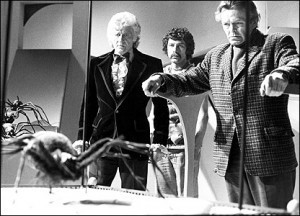
First time I rewatched this as an adult, the revelation that Gambit from the New Avengers was Arak and his moustache BLEW MY MIND.
Who am I kidding? Especially Gareth Hunt's moustache.
From a feminist standpoint, there's a lot to talk about in Planet of the Spiders. It's one of my favourite Sarah Jane Smith stories, because like The Time Warrior and Robot, it shows her actually getting on with her job as a journalist, and balancing that with her role as the Doctor's friend.
I say friend rather than companion because while she has flitted to a few alien planets with the Doctor, and engaged in a bit of UNIT action there on Earth, Sarah still very much has her feet on the ground, and a life of her own. She's not employed by UNIT, and as we see later in Robot, is not above using her connection with them to suit her own needs, rather than always being part of the Doctor's story. This will change, but it hasn't yet.
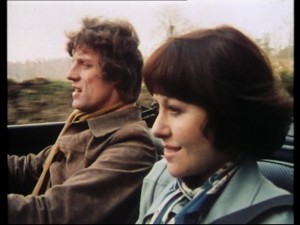 Indeed, we don't see Sarah and the Doctor interact for the whole first episode. Her adventure is with disgraced former UNIT lieutenant Mike Yates, and if you read this as her being the sidekick to his male action hero, then Sarah Jane would laugh at you. Mike has invited her along to help him investigate a mystery at a monastic retreat in the hopes that she'll be his unofficial line to UNIT, and maybe he does see her as his sidekick, but he'd never admit that out loud. Sarah takes on the adventure as her own with great gusto, and isn't above reporting on it for her newspaper at the same time.
Indeed, we don't see Sarah and the Doctor interact for the whole first episode. Her adventure is with disgraced former UNIT lieutenant Mike Yates, and if you read this as her being the sidekick to his male action hero, then Sarah Jane would laugh at you. Mike has invited her along to help him investigate a mystery at a monastic retreat in the hopes that she'll be his unofficial line to UNIT, and maybe he does see her as his sidekick, but he'd never admit that out loud. Sarah takes on the adventure as her own with great gusto, and isn't above reporting on it for her newspaper at the same time.
Mike is lucky to be allowed to stick around as her sidekick. When he reveals his plan for them to drive away and travel back sneakily on foot, Sarah is either genuinely admiring that he's capable of such a sophisticated plan after years working for UNIT, or is making fun of him when she shakes her head and says: "The fiendish cunning of the man."
Possibly both.
It looks very much like a typical old school male-centric Doctor Who story at first, with Sarah as the only active female character among a sea of monks, stressed former businessmen and UNIT soldiers, not to mention the Doctor himself, but then the spiders turn up.
Passing the Bechdel Test? Only the arachnids.
There is no way this story would pass the Bechdel Test without the spiders. Come to think of it, I'm not entirely sure it DOES pass the Bechdel Test, as I forgot to check, and thinking back, there are very few scenes with the spiders talking to each other that don't also include Lupton, or the Doctor, as subjects or participants. Certainly the two human women in the colonist's village are all about the menfolk.But the spiders steal the show. The voice acting is very effective (I'm annoyed that I can't find anywhere which actress played which spider, especially as one of them was Kismet Delgado, widow of the recently departed Roger Delgado, the original Master), and I'm personally invested in the props as characters, too. Sure, they mostly sit there and twitch, but they do it with style and witty banter. The entire plot revolves around a matriarchal dictatorship that doesn't feature glamorous babes in sexy outfits, which is a pretty rare thing in science fiction on screen.
Curiosity sent the journalist to Metebelis Three.
Sure, Sarah Jane gets possessed, as happens quite often in her run – but by a female character, and not just any female character, but the Queen of the Spiders. Also, Sarah falling victim to this trick is balanced out by the fact that we see huge numbers of male characters possessed by, enslaved by or forced to work for the spiders: basically everyone in the monastery except the Abbott, and all the named male characters on Metebelis Three. Even Lupton and his spider, who think they are all that, cannot outplay the Queen.I can't help thinking how awesome it is that Planet of the Spiders is mostly about female characters successfully manipulate men, without any reference to sex or the female body. Because they're spiders. This is one of those fantastic things that science fiction CAN do that almost no other genre can, but it hardly ever comes to the feminist party.
It's rare for a six parter in Doctor Who to actually fill that length of a story without feeling like a four parter and two parter mashed together, but this one works by offering up many twists and turns, and some of the best Pertwee era cliffhangers, the most surprising of which is when Sarah ends up accidentally transported to the alien planet, and the Doctor has to go after her. This leads to one of the many fan-pleasing moments of the show, in which Yates actually calls the Doctor on how unlikely it is that, even if he reaches the planet he's aiming for in the TARDIS, that he can find Sarah easily. Because, you know. Planets are big. It's a rare acknowledgement of that element of the show that always seemed like it was hand wavy and lazy (that is, that the Doctor always coincidentally lands on the one spot on the planet where interesting things are happening) all the way up to Neil Gaiman's recent story "The Doctor's Wife," which makes explicit something often hinted at in the show's history.
In this case, the Doctor does admit that he leaves the landing up to the TARDIS – she knows what she's doing.
"You speak about her almost as if she's alive."
"Yes, I do, don't I?"
"What do you mean, you have the cutest outfits? My ruffled shirt matches my flying car!"
This story is an action extravaganza for Jon Pertwee – as is evident from the aforementioned chase scene in episode two, in which he pursues Lupton and the stolen crystal relentlessly, using both of the Doctor's cars (Bessie and the silver Whomobile) as well as a gyrocopter, speed boat and hovercraft. It's a pretty swish sequence for its time, even if the seams show occasionally in the Chroma Key, and it's clear that Pertwee is loving the hell out of the whole shebang.Later, on Metebelis Three, the Doctor gets to play with all his action fake Venusian karate moves too, and even start a rebellion against the spiders using nothing but a handful of pebbles. But the story isn't just about his adventuring spirit. Indeed, the male heroic tradition is undercut at least twice when his attempts to rescue Sarah results in immediate disaster, and he spends a good chunk of the story apparently dead or comatose. This gives Sarah a chance to work through a more substantial emotional reaction to what was to happen for real, later on. It's also kind of nice that they're letting the Doctor have flaws, rather than building him up in this final story as some kind of paragon. After all, the culmination of the story is, in fact, that he has been pushing his luck.
"Remind me, whose turn is it to do the rescuing?"
I particularly like the bit where Sarah is wrapped in a web by the spiders, having to put up with her gloomy fellow prisoner, and is delighted to see the Doctor (of course!) arrive to rescue her – only to have him reveal with mild embarrassment that, in fact, he's under arrest too. Her eye-rolling response is classic!For all the vim and vigour of his final story, I think my favourite Third Doctor scenes are the quiet ones: himself wrapped in the spider cocoon in prison, trying to remember the name of Harry Houdini so he can successfully namedrop, and especially the scene in which he talks wistfully about his old teacher and childhood home, an anecdote which seems to be yet another in-character casual reference to all that gorgeous backstory, but turns out to be hugely relevant to the plot and the final reveal.
Meanwhile, Elisabeth Sladen is also showcasing how great her character is, starting out with Sarah Jane's entertaining Secret Seven Go Spying double act with Mike Yates, her impatience at the Doctor never listening to her properly, her FABULOUS outfits (seriously, cosplayers, so many beautiful clothes in this one story), and her ability to convey genuine fear one minute, snarky humour the next, and then a touch of evil just for the sake of it. She actually shoots the Doctor with her hand!
Of all Sarah Janes's great moments in the episode, though, my favourite is when is dragged off from the prison to see the spiders. The Doctor asks if she can delay them (!) and she says with great oomph: "Don't worry, I'll give them all indigestion!"
"I can keep it, right? Spoils of Doctoring."
Planet of the Spiders is a fun ride, and a great example of this particular era of Doctor Who, from the writer who also brought us the classic UNIT family stories The Daemons and The Green Death. Jon Pertwee's dashing Doctor knowingly goes to his fate at the hands of the Great One, the biggest and baddest lady spider of them all, and is genuinely cowed by her. Considering that he is such a patriarchal figure, possibly more so than any of the other Doctors apart from Hartnell, it's kind of interesting to see that his death is not only due to his pride and arrogance (and for taking something he shouldn't have from an alien planet) but at the hands of a female monster. Sure, he takes her with him by using her own arrogance against her, but it's still quite an event!"Is that fear I see in your eyes, Doctor? You are not accustomed to feeling frightened, are you?"
The final regeneration (first time the word is used and the concept is properly explained!) scene is touching and sweet. Once again it's Elisabeth Sladen's Sarah Jane who is carrying the emotional weight of the scene, with the Brigadier there merely to roll his eyes and make the phone calls. The end of an era, and one that's been sent off in style. Time for the new team to take over…
RAELI'S (Age 7) REVIEW :
I liked the bit where they sang Om Manny Padme Hum.
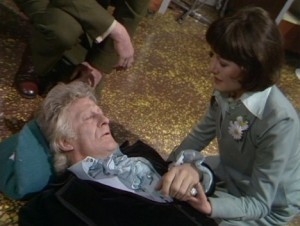
"Is that a tear, Sarah Jane?"
February 27, 2012
Mothering, Writing, Pilating, Guilt
I finished my short story! It feels like a big achievement, the first thing finished of the year. This is going to be my year of finishing things, and rewriting things, and submitting things. Many things. For the first time in a while, I don't have a contract or official deadlines which means I have to MAKE MY OWN.
Today is Pilates Day, an activity I took up when Justine Larbalestier started evangelising about how important it was for writers to start that kind of stuff BEFORE developing RSI or some other work related injury. When I started, it was amazing how many people were there to fix something awful they had done to their bodies. I would feel a bit abashed about being there pre-emptively, but it seems the thing to do.
Pilates is one of those things I had to circumvent a lot of guilt to allow myself to do – because it's something that's about ME and not the family. Especially when I was using household money to pay my way – but since our last big budget rehaul, I've been paying for it myself and buying less things on the internet in order to do so, which means I feel less like I have to justify This Thing.
(I know, by the way, that I shouldn't have to justify it, and what's good for me is good for the family and so on, but logic is logic and guilt is guilt)
Managing guilt is a huge aspect to being a working mother. Or a mother full stop, I guess. (it's also one of the hardest aspects to reconcile with being a feminist – what works in theory often falls down in practice, and when the baby's screaming, theory doesn't help much!) I find it interesting when talking to other mothers that we all have different lines of guilt, those which we cross regularly and feel bad about, those which we try not to cross and feel AWFUL about, and those which we are okay with.
One of my lines is that I don't use paid daycare for Pilates. I only have two days a week for the 2 year old in daycare, and I need those days for writing! I also use that time for shopping, housework, chores etc. but I'm well aware of how much writing and writing-related work I have to do that doesn't quite fit into those days. Daycare days are my days where getting shit done is a lot easier than any other time.
I'm lucky that I have no guilt at all associated with daycare. But then, my kids have always loved daycare, and benefited from it. Our local centre is a really good one. And it constantly annoys me as a feminist that, when telling people that my daughter is in daycare, I always feel the need to tell them STRAIGHT AWAY how much she enjoys it, and the direct benefits she gets from going there, regardless of the whole 'mummy needs to be sane, mummy needs to get her work done, no matter what' issue. I shouldn't justify myself, but… I guess there's a hint of pre-emptive defensiveness sloshing around in there.
So lucky to have sociable children, though! I have witnessed the pain and stress of parents who have to fight their kids (and their own overwhelming guilt) to leave them at daycare, and it's dreadful to see them go through that. I empathise deeply.
As we figured out on our last budget, it's a bit dicey as to whether we can afford that second day. But one is NOT ENOUGH. Our compromise was that I would try to contribute the equivalent of that one day in my occasional income over the year (the kind that arrives in random cheques, fits and starts). I always knew daycare was worth it, so never really paid attention to quite how much it costs, but we're talking $3000 over the year for each day. So, um, yes. There's another level of guilt associated with those days – I always feel the pressure to make them REALLY REALLY PRODUCTIVE.
That is what we call Useful Guilt.
This, by the way, is my own way of looking at the world. Other people can spend their daycare days however they like! Mother guilt is kind of a personal, specific thing. Like body image, it's amazing how many women can be deeply critical of themselves and yet happily encourage others to not feel bad at all, without even noticing the disconnect.
I couldn't attend my weekly Pilates class if not for the voluntary service of one of my parents. This is another common thread of modern motherhood – reliance on the next generation up for unpaid daycare and babysitting, in order for our own family to function. The upside of this is that my Mum and Jem get some time together weekly (and it's an arrangement that doesn't have to change during the school holidays, which is a major plus – she can just include Raeli in the morning's plans). There are other direct benefits – Mum is flexible, so I can extend my Pilates class into getting other chores done, parcels posted, PO Box checked, and even having lunch occasionally with my honey. Plus she always does my washing up, and sometimes cleans the floor too. MY MOTHER IS AWESOME.
The key to making Tuesdays work for me is to not plan to get much of anything done. Which is fine except when I have a daily writing target I have to reach.
My Dad chips in with at least one Raeli pick up a week, which extends one of my paid daycare days to 7.5 hours entirely child free instead of having to do the school run with my older child hours before I have to pick up the younger one. Which is fine until soccer season starts. At least Raeli can occupy herself for a couple of hours – far more than when she was younger. She has discovered comics and (in the last fortnight) chapter books, so hooray!
A huge decision this year, which turned out to be more drama than I hoped, was to move Raeli's after school gymnastics from a Jem daycare day to a NOT Jem daycare day. It means a hideous Wednesday now, as it turns out that the cute little cage full of toys to occupy stray children is busier than a traffic intersection, and Jem didn't want a bar of it. She spent the whole gymnastics session clinging to me and eating potato chips pointedly. But the pay off is that Thursday now is calm and streamlined – last year we had Raeli after school activities on both daycare days which was a bit frustrating.
All dull details for my readers, I expect! But the upshot is that all this juggling means that time is incredibly valuable to me. My time is money – because a good chunk of my writing time is paid for, by me or by our household budget, and thus is money not paying off the mortgage. So that adds a certain pressure not only for me to be personally productive, but to get paid for my work. I think a lot harder now before doing favours for people, or volunteering time.
I didn't do a single hour of classroom help last year, which I felt extremely bad about, because we're supposed to have that time, aren't we? Supposed to give that time to our school and our kids. Without parent help, for instance, the classroom is so pushed that kids don't get tested on their spelling. So there was a bunch of guilt. But not enough guilt to give up my rare, precious paid-for hours.
All this is great but it makes for a lousy writing day – often I don't get home until 12-1pm, and of course I have to leave the house at 2:30 to pick up Raeli from school. Luckily my mother is good at getting Jem down for her nap early – later naps are starting to become a drama for us, because if she doesn't fall asleep until 1:30, dragging her up for the school run becomes miserable for everyone.
These are the things I think about when people say 'how on earth do you get any writing done?'
My answers, given with suitable facial indications as to how serious I'm being:
"Well, I don't, really. Have you seen how many books other writers can get done in a year?"
"Panic = adrenalin."
"I'm a really bad housewife." (true, though I make more effort since podcasts)
"Daycare helps."
"My mum cleans my house."
"I neglect my children." (mostly not true, though it felt like that the day my toddler punched my laptop)
"Oh, well, you know." (translation: if I don't write, I won't write, and that's not an option, what do you people who don't write novels do with all that time pouring out of your ears?)
Mostly when people ask how I get my writing done, I resist the urge to laugh bitterly in their faces, and then try to tactfully answer so as not to in any way imply that they are in no way at fault for not writing novels themselves in the spare time they don't have. Which means I completely never take the credit for all the work I do, and the effort I put into that work.
When you love something, you make time for it. I chew pieces off the ends of other pieces of time, and jam them all together with sticky tape. I never really stop and smell the roses, because I'm too busy trying to squeeze my time dry, three times over. I have no hobbies that aren't, somehow, also work. Sometimes I let my kids watch too much TV. I never do enough housework. I don't get enough exercise. I expect a lot of my partner.
I write because I write because I write.
February 26, 2012
Writing – Mothering – Balancing
It occurs to me that the blog has become less and less personal. I write a lot of pop culture essays, and put up links, but I don't talk much any more about process, or my writing career, or even personal everyday stuff.
I'm not sure why that it – the process stuff I understand, because I'm so wrapped up in the -aargh- phase of finishing my new novel that I'm not ready to talk about it. And, you know, my kids are cute and all, but there's only so many pictures I can post of them dressed as Doctor Who characters.
Still, I'd like to continue talking about home and domestic stuff, if only to continue my theme of – hey, writing and parenting, go together pretty well but it's HARD sometimes.
I didn't work this weekend at all. I often don't – taking weekends has been a big and important step for me, and one I've only come to in recent years. Partly it was deprogramming from the PhD years, and partly a symptom of working from home – I've always been self-employed/freelance/creative and that means you never have a structured day off. You have to make one.
As a parent, the weekend is the time when I have a fellow parent home all day, and there's a lovely decadence in that. Baby smells whiffy, there's a 50-50 chance I don't have to deal with it! But because of that, I regularly slip into the bad habit of assuming I will get more done on the weekend than I actually do, and feeling on Monday like I'm WAY BEHIND which is stressful and horrid.
Also there's the thing where, during the precious Nap Hours that still occur most days (that's when the 2 year old naps, not the rest of us), my seven year old daughter quite reasonably expects that sometimes we'll do something together. Something Jem-free. I had no qualms about telling her to go read a comic or something, Mummy was busy, during the school holidays, but now she's back at school, there are very few Mummy-Raeli-Jemfree hours.
So I try to keep my expectations of the weekend to a minimum, unless I have a dire deadline. This weekend, once I got the head's up that we were going to have crazy 35 degree days with it not cooling down much at night (a rare occurrence in the Tassie summer) I decided that okay, I wasn't going to try to get ANYTHING done this weekend at all, except for maybe catching up on my bookshelf reading.
Which was fine except that I forgot I do have a daily wordcount quota to reach – this is not a particular 'writing this thing' month for me, because of school holidays in the first half and working up to my big Fury revision (apparently I need to take a run up) but I had a bunch of small projects to work on so my plan was, starting from the 11th of the month, I would write 500 words a day on fiction.
My overall goal for the year is 200K of fiction, but that's based on 25K a month from April to September (my sustainable active novel writing target) and then a successful Nanowrimo in November. However, writing 500 words a day from the 11th to the 29th (on things I had to write ANYWAY, chapters for a co-writing project and short stories, mainly) meant I could get a 10,000 word head start on my year.
And, this weekend, I fell down on it. Because 500 words is so small, I can manage it mostly with an hour or so (sometimes more, sometimes less) of concentration, or a whole bunch of 15 minute bursts of concentration, and there was no concentrating happening at all this last weekend. Mostly it was icypoles, Doctor Who Monopoly, and endless baths for the children to make up for the fact that they couldn't go outside.
But with only a few days to go before the end of the month, and a hard deadline for one particular short story, I panicked yesterday evening and drilled out the 1000 words (on the right thing!) in a moment of adrenalin fuelled madness.
Sure, it doesn't sound like much. It's half a good Nanowrimo day. But I am out of practice, and it was hot enough to melt everything between my ears. So I take that as the victory it is.
I really need to finish that short story today.
But I don't know yet whether my after school babysitting option is a go or not, and the difference that makes is an extra 2.5 hours in my day. 5 hours, or 7.5 hours. When you also need to clean the house, cook the dinner, catch up on a week's worth of email and… and… and…
Really, I don't have time to write this blog entry. But unlike everything else I have to do today, it's finished!

